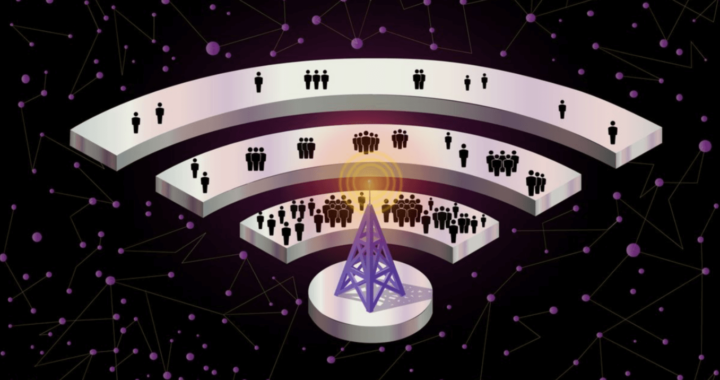4 Steps for Companies to Respond to a Cyber Attack Incident

With businesses adopting WFH and hybrid work policies to respond to the pandemic, an open season has been created for cybercriminals. How should you respond if your company has been through a cyber-attack? Read this post to find out.
The pandemic has had severe consequences for global businesses. With lockdowns implemented in most countries, companies adopted WFH (Work from Home) policies to continue their operations in whatever capacity possible. Once the lockdowns were relaxed, many organizations implemented a hybrid model combining WFH and work from the office.
With employees working from a variety of different locations, it became easier for cybercriminals to target businesses, especially with ransomware attacks. According to a WHO report, cyberattacks increased fivefold in April 2020 compared to April 2019.
Ideally, businesses should have a plan for dealing with such breaches. Here are 4 steps in which companies can respond to a cyber-attack if they don’t already have a response plan in place-
1. Start with Securing the Systems
After an attack, the first step should be securing the IT systems so that the breach can be contained. In other words, an organization might be required to temporarily suspend or isolate the breached network section or even the entire network.
It is also crucial to consider when and how the breach was discovered, and if some other networks or systems are compromised. There should be measures in place to ensure that such breaches and attacks are detected as quickly as possible.
2. Investigating the Breach
Once the systems are secured, you should start investigating the factors that resulted in the breach. A team member can be appointed to lead this investigation and be provided the required workforce and resources for the same. In case if the breach might involve an employee, an HR representative should also be a part of the investigating team.
The investigating team should also thoroughly document all the steps that are being taken so that the same can be submitted for regulatory notification.
3. Managing PR
Managing public relations becomes critical after a cyber-attack, especially for consumer-facing companies. While not all breaches should be made public, it is important to let people know about the incident if their personal data is compromised in any way.
Such announcements should be made in a timely manner so that your customers can also take preventive measures to protect their data if possible. Rather than hiding critical information, it is generally better to be honest and open with your messages to the public.
4. Addressing Regulatory Requirements
While the Indian IT Act does not have any specific requirements for businesses to report cyber-attacks, the intermediary guidelines mandate intermediaries to inform ICERT (Indian Computer Emergency Response Team) of the breach. Also, certain types of cybersecurity incidents, like identity theft, malicious code attacks, phishing, etc., should be mandatorily reported to the ICERT.
Moreover, there are some industry-specific bodies that have additional reporting requirements for industries like banks, financial services, etc. Any failure in reporting such incidents by the required entities could lead to monetary penalties.
How Can Leading Cybersecurity Services Help?
Businesses can rely on reputed cybersecurity services for building a cybersecurity plan and responding to cyber-attacks. With the world already reeling under a pandemic and cyber-attacks rising, it is essential for businesses to have a solid cybersecurity plan in place to eliminate the security loopholes in their IT infrastructure and better respond in case of a breach.
The cybersecurity services can be customized as per the specific needs of businesses to ensure that they are effectively protected against evolving cyber threats at all times.

 Revolutionizing Small Business Customer Support in India: A Guide to Top Customer Support Software
Revolutionizing Small Business Customer Support in India: A Guide to Top Customer Support Software  Maximizing User Experience: Innovative Mobile App Design Strategies
Maximizing User Experience: Innovative Mobile App Design Strategies  Mastering React Native Development: Skills Every Developer Needs
Mastering React Native Development: Skills Every Developer Needs  How Blockchain Technology Sets Itself Apart in the Mobile App Development Industry.
How Blockchain Technology Sets Itself Apart in the Mobile App Development Industry.  Internet service from CenturyLink is fast and reliable
Internet service from CenturyLink is fast and reliable  Top Tips for Securing a Potential Client
Top Tips for Securing a Potential Client  Harnessing the Medicinal Benefits of Weed: How to Make Use of Cannabis and Hash
Harnessing the Medicinal Benefits of Weed: How to Make Use of Cannabis and Hash  The Art and Craft of Dried Flowers: Insights from a Dried Flower Manufacturer
The Art and Craft of Dried Flowers: Insights from a Dried Flower Manufacturer  Finding the Best Hash Online in Canada: Advanced Tips for Enthusiasts
Finding the Best Hash Online in Canada: Advanced Tips for Enthusiasts  The Vital Role of Gymnastic Mats in Canada
The Vital Role of Gymnastic Mats in Canada